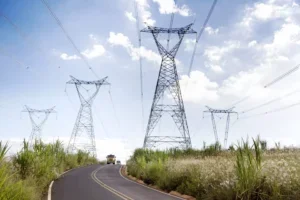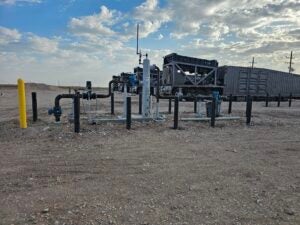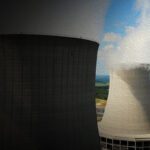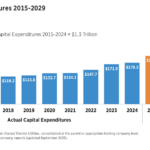
From France’s legacy to America’s momentum, experts warn that without decisive leadership, China and Russia will dominate the nuclear-AI economy.
Nuclear energy has moved from being a quiet constant to the centerpiece of a global race. Nations increasingly recognize that sovereignty—economic, technological, and cultural—depends on securing clean, stable, and independent sources of power.
COMMENTARY
Myrto Tripathi, who has spent years advancing nuclear in Europe, put it plainly when speaking to Phil Zeringue on The Future of Nuclear Energy Podcast: “Energy is the great enabler—it empowers people to make their own choices, to feed, cure, and house themselves, but also to respect the limits of our planet.”
Europe’s Lesson: Sovereignty through Nuclear
France’s reliance on nuclear power is no accident. Tripathi points back to the founding of the European Union:
“The founding fathers of the European Union bound themselves through nuclear power because it was seen as a source of peace and prosperity.”
For France and Europe, nuclear energy is not just an energy choice—it is a guarantor of independence as it pertains to political and economic terms.
That lesson resonates today, as Europe grapples with energy shocks and geopolitical threats. Nuclear remains the only scalable pathway that preserves both sovereignty and security.
U.S. Momentum and Market Leadership
The U.S. is showing renewed signs of momentum. A leading example comes from Texas, where Reed Clay, President of the Texas Nuclear Alliance, helped drive landmark legislation.
House Bill 14 established a dedicated nuclear office, created a streamlined permitting process, and allocated nearly half a billion dollars to attract investment.
“There’s a sense of urgency. If we don’t succeed now—if we don’t capitalize on the market forces and public support we have today—we may not get another opportunity,” said Clay.
This state-level leadership illustrates how the U.S. can reassert itself not only to secure energy reliability and economic growth, but to position itself in the global contest for influence.
What’s at Stake: China, AI, and Geopolitical Power
The contest is not limited to energy supply. It is about who will control the infrastructure underpinning the next industrial revolution: artificial intelligence. Data centers are projected to double electricity consumption by 2030. Only nuclear power can deliver the clean, always-on power they require.
China recognizes this. Beijing is building reactors at an unmatched pace, exporting nuclear capacity while bundling AI and digital infrastructure under its Belt and Road Initiative. This strategy links nuclear energy with technological dominance and geopolitical leverage.
Tripathi warns, “Nuclear sits at the nexus between human development and climate. Without it, nations risk being dependent on others for the most basic of needs.”
Clay echoes the strategic risk: “We can’t let Russia and China become the world’s exporters of nuclear energy. The U.S. has the resources, the will, and the track record to lead this race.”
And as Zeringue underscores, “Nuclear isn’t just about power plants—it’s about national security, economic stability, and the ability to stand independent in a rapidly changing world. The race is global, and the clock is ticking.”
The Path Forward
From Paris, to Washington, D.C., to Beijing, the message is converging. Nuclear energy is no longer a side conversation in climate or industrial policy. It is the central contest for sovereignty, security, and survival in the twenty-first century.
Tripathi calls it the enabler of dignity, prosperity, and development. Clay calls it the foundation of America’s competitive future. Zeringue calls it the cornerstone of national security.
The nuclear race is underway, and the stakes could not be higher. If democratic nations fail to lead, they risk becoming buyers rather than builders in the nuclear-AI economy. The question is not whether nuclear will define the future, but who will control it.
—This blog post was contributed by Alex Manders, nuclear advisor, with expert insights from Myrto Tripathi, general director of the TerraWater Institute, and president (volunteer) of the NGOs Voices of Nuclear and EcoHumans; Phil Zeringue, chief revenue officer, Nuclearn; and Reed Clay, president of the Texas Nuclear Alliance.









